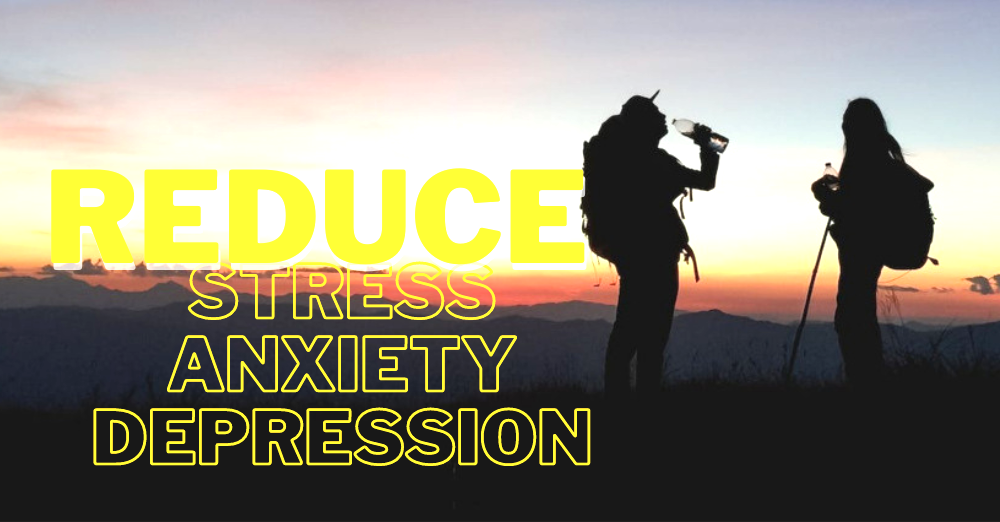
It had been a while since Amy was out hiking, but she was determined to start again. She had been feeling sluggish lately and wanted to improve her fitness. So, she packed her backpack with bottles of water, some snacks, and a first aid kit, and headed for the trails.
As he climbed the steep incline, he felt his heart racing. But he didn’t give up, knowing the effort was good for his body. The scenery was breathtaking, with tall trees and colorful wildflowers along the trail.
After a few hours of hiking, Amy felt like a new person, with more energy and vigor. She had burned calories, making her feel better about herself.
Walking down the trail, she thought about the other health benefits of hiking. It was a great way to reduce stress, improve cardiovascular health, and strengthen muscles.
Hiking is an excellent example of moderate resistance training, where the body learns to use more fat as an energy source. The heart muscle gets stronger and pumps more blood per heartbeat. As a result, our pulse rate is lower during stress and rest. Patients with hypertension can benefit from this. Nutrients enter the cells better, where they contribute to their regeneration.
With hiking, in addition to endurance, you also train your muscles: legs, torso, and arms. Downhill, the gluteal muscles must absorb the body weight repeatedly and become more vigorous.
The fact that active vacations at different altitudes have a positive effect on health has been demonstrated by the Austrian Moderate Altitude Studies (AMAS) sports-medical research project.
The thinner air forces the body to form more red blood cells and increases oxygen uptake. They eventually promote the cardiovascular system and make it more efficient.
––––––––––
✅ A stay outdoors not only helps against stress, but also minimizes anxiety, so hiking and climbing are “fertilizers for the brain.”
If you’re planning a hiking trip, here are 10 helpful tips. 1 – Enter slowly. To get started in hiking, plan several short runs rather than one long run. 2 – Increase your efforts. Start with flat runs and gradually incorporate steeper climbs into your hiking routes. 3 – Monitor body values while walking. Check your pulse, etc., with fitness trackers. 4 – Talk to a doctor. Consulting with a specialist helps prevent health-damaging overexertion when walking. 5 – Beware of group walks. If the fastest hikers precede, this can quickly overwhelm the next hikers.
6 – Drink regularly. Especially on hot days, a few sips of water are essential for about 15 minutes. 7 – The temperature for walking. Many layers of light clothing allow you to adapt to every effort and weather. 8 – Avoid the load. Stress increases during hours of steep descent. Therefore, when choosing a route, you should pay attention to the regular change of ascents and descents, and pack hiking poles.
9 – Promotes mental health. Hiking is perfect for a healthier mind, because it provides a contrasting experience to everyday life by walking in an entirely different environment. 10 – Relaxation. Some may relax better during solitary hiking, and others crave sharing in groups: everyone should know their needs and organize their hikes.
What are the physical benefits of hiking? Physical benefits include improved cardiovascular and muscular fitness—increased strength and endurance. They improve sleep patterns, reduce stress, anxiety, and depression, and minimize the risk of chronic diseases like heart disease, diabetes, and obesity.
Is hiking a good exercise for strengthening leg muscles? Hiking works the leg muscles, including the quadriceps, hamstrings, and calves, which can help tone and maintain them. Hiking is excellent for people of all fitness levels. This low-impact exercise can improve leg strength and physical health through various intensity levels.
Have you ever heard of grounding? These exercises help you connect with the energy of the Earth, like walking barefoot. Direct contact with the ground leads to better sleep and less inflammation.
Is it difficult to climb a mountain? It is exciting and challenging, but also dangerous. There are risks of falls, hypothermia, and altitude sickness. Depending on the difficulty of the hill, it requires advanced skills and equipment. It is crucial to avoid becoming too obsessed with reaching the summit and to be aware of personal limitations. Advice from experienced hikers includes high mountain boots and physical preparation for the ascent.
––––––––––
––––––––––
